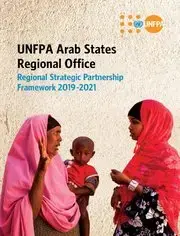In 2011, the Busan Agreement for partnership for effective development cooperation was launched within the framework of the Fourth High level Forum on Aid Effectiveness. The Busan Agreement highlighted four principles for all development actors that are key to making development cooperation effective. These include ownership of development priorities by developing countries; a focus on results; partnerships for development involving the participation of all actors recognizing the diversity and complementarity of their role; transparency and shared accountability.
The Global Partnership for Effective Development Cooperation as a multi-stakeholder platform, to advance the effectiveness of development efforts by all actors, was established as a direct result of the Busan Partnership Agreement. Busan and the Global Partnership have promoted a paradigm shift in partnership for development. Partnership was to become inclusive, multi-stakeholder and effective. The UNDG as members of the Global Partnership effectively adapted this paradigm shift as a focused approach to achieve the SDGs.\
In tandem with this shift, UNFPA’s mandate lies at the core of the 2030 Agenda for Sustainable Development. The three UNFPA’s transformative results – (i) ending preventable maternal death; (ii) ending unmet need for family planning; (iii) ending gender-based violence and harmful practices, including female genital mutilation (FGM) and child, early and forced marriage – are essential to ensure the achievement of the 17 Sustainable Development Goals (SDGs).
In this context, the 2030 Agenda stands both as a roadmap of opportunity and as an ambitious challenge, which no single institution is able to tackle alone. Multi-stakeholder efforts and alliances become key to ensure sustainable progress in all sectors. SDG 17 calls for unleashing the potential of partnerships through innovative alliances with the private sector, CSOs, parliamentarians, philanthropic organizations, the scientific community and individuals. The Global Partnership reaffirms this basic rule, now effectively adopted by development actors.


